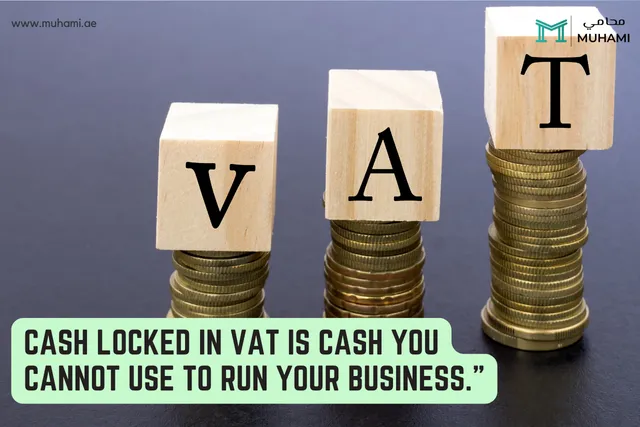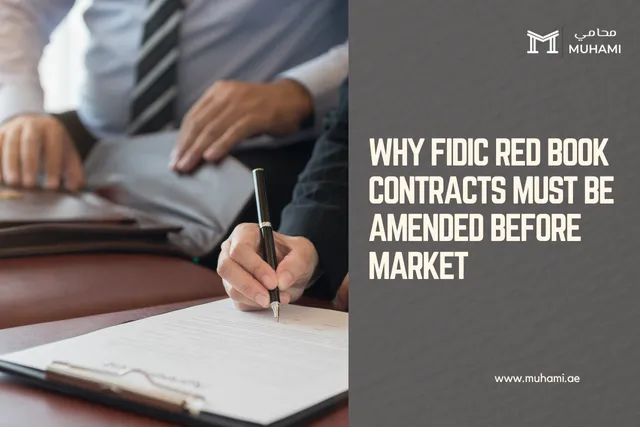The Ultimate Guide to Setting Up a Business In The UAE: Free Zone, Mainland, DMCC, DIFC or ADGM?

The Ultimate Guide to Setting Up a Business in the UAE: Free Zone, Mainland, DMCC, DIFC, or ADGM?
Are you considering starting a business in the UAE in 2024? The United Arab Emirates continues to be a thriving business hub, attracting entrepreneurs and investors from around the globe. With its strategic location, world-class infrastructure, and business-friendly environment, the UAE offers multiple options for setting up your business. But with recent changes, including the introduction of corporate tax, how do you decide where to establish your company? This comprehensive guide breaks down the advantages and disadvantages of starting a business in the UAE’s Free Zones, Mainland, Dubai Multi Commodities Centre (DMCC), Dubai International Financial Centre (DIFC), and Abu Dhabi Global Market (ADGM), helping you make the best decision for your business.
Why Start a Business in the UAE?
The UAE’s appeal as a business destination lies in its robust economy, favourable regulatory environment, and strategic location that connects the East and West. In 2024, the UAE remains a top choice for startups, established businesses, and international corporations looking to expand, thanks to its progressive business policies and strategic initiatives like the introduction of the Golden Visa and the shift towards a digital economy.

Understanding the UAE Business Setup Options
1. Free Zones in the UAE
Advantages:
- 100% Foreign Ownership: Free Zones continue to allow full foreign ownership without needing a local partner.
- Tax Incentives: While the introduction of corporate tax in 2023 applies to some Free Zone entities, many still benefit from tax incentives if they meet specific criteria. Free Zones generally offer 0% personal income tax and exemptions from import and export duties.
- Streamlined Setup Process: Setting up a business in a Free Zone remains faster and more straightforward, with simplified procedures and minimal bureaucracy.
- Sector-Specific Zones: Many Free Zones are tailored to specific industries, offering specialized infrastructure and support, making them ideal for targeted business activities.
Disadvantages:
- Geographical Limitations: Free Zone companies are restricted from directly trading within the UAE Mainland unless they appoint a local distributor or establish a Mainland branch.
- Corporate Tax: As of 2023, Free Zone entities that do not meet the qualifying income criteria are subject to a 9% corporate tax on profits exceeding AED 375,000.
- Limited Market Reach: Businesses operating within Free Zones primarily target international markets or within the Free Zone, limiting access to the broader UAE market.
Best For: Entrepreneurs and businesses seeking tax incentives, ease of setup and 100% foreign ownership, particularly if their focus is on international markets or specialized sectors.
2. Mainland UAE Business Setup
Advantages:
- Unrestricted Market Access: Mainland companies have the advantage of trading freely within the UAE and internationally, with no restrictions on market access.
- Wide Range of Business Activities: Mainland businesses can engage in a diverse range of activities, including trading, services, contracting, and government contracts, without the limitations often found in Free Zones.
- Prime Locations: Mainland businesses can operate from any location within the UAE, offering flexibility in choosing strategic locations that best suit their business needs.
- Networking Opportunities: Operating on the Mainland provides more opportunities to network and collaborate with local and international businesses, government entities, and large corporates.
Disadvantages:
- Corporate Tax: From June 2023, Mainland companies are subject to a 9% corporate tax on profits exceeding AED 375,000. This new tax regulation affects most Mainland businesses, making tax planning more crucial.
- Higher Setup Costs: Establishing a Mainland business can be more expensive due to higher licensing fees, office rent and the requirement for a physical presence.
- Regulatory Complexity: Mainland businesses must navigate complex UAE-wide regulations, including labour laws, VAT, and compliance with the new corporate tax regime.
Best For: Businesses looking for unrestricted market access and the ability to engage in a wide range of activities across the UAE and internationally.

3. Dubai Multi Commodities Centre (DMCC)
Advantages:
- Prestigious Reputation: DMCC remains one of Dubai’s most reputable Free Zones, consistently recognized as a leading global Free Zone.
- Strategic Location: Located in Jumeirah Lakes Towers (JLT), DMCC offers prime access to business districts, transport links, and amenities.
- Diverse Business Opportunities: DMCC supports a wide range of business activities, from commodities trading to technology, making it a versatile option for various industries.
- Tax Incentives: DMCC entities benefit from tax incentives, including 0% corporate tax for those meeting the qualifying income criteria, 0% personal income tax, and full repatriation of profits.
Disadvantages:
- Corporate Tax: As with other Free Zones, DMCC entities that do not meet qualifying income criteria are subject to the 9% corporate tax on profits above AED 375,000.
- Higher Costs: Setting up and maintaining a business in DMCC can be more expensive due to prime office space requirements and higher operational costs.
- Office Space Requirements: DMCC mandates leasing or purchasing office space within the JLT area, which can be costly for startups or small businesses.
Best For: Established businesses and startups in sectors like commodities trading, technology and services seeking a prestigious and strategically located business environment.
4. Dubai International Financial Centre (DIFC)
Advantages:
- Global Financial Hub: DIFC continues to be the leading financial centre in the Middle East, offering a robust legal and regulatory framework based on English common law.
- Independent Legal System: DIFC operates under its independent legal system, providing legal certainty and strong investor protection.
- Access to Financial Services: DIFC is the go-to location for companies in banking, insurance, asset management, and fintech, offering comprehensive access to financial services.
- Global Connectivity: DIFC’s strategic location and connectivity to global financial markets make it an attractive choice for international businesses and investors.
Disadvantages:
- Sector-Specific Focus: DIFC is primarily geared towards financial services, which may limit opportunities for businesses in other sectors.
- Higher Operating Costs: Setting up a business in DIFC can be expensive due to higher licensing fees, prime office space costs, and stringent compliance requirements.
- Corporate Tax: Businesses in DIFC are also subject to the 9% corporate tax on profits above AED 375,000 unless they meet specific qualifying criteria.
Best For: Financial institutions, fintech companies, and businesses within the financial services industry looking for a secure, globally recognized, and well-regulated environment.
5. Abu Dhabi Global Market (ADGM)
Advantages:
- International Financial Hub: ADGM is a leading financial centre in Abu Dhabi, offering an independent legal system based on English common law, similar to DIFC.
- Innovation and Fintech Focus: ADGM has a strong emphasis on innovation and financial technology, with initiatives to support startups and tech-driven enterprises.
- Robust Regulatory Environment: ADGM offers a robust regulatory environment tailored for financial services, fintech companies, and legal services firms.
- Strategic Location: Located on Al Maryah Island, ADGM provides access to international markets and a wide range of financial services.
Disadvantages:
- Sector-Specific Focus: Like DIFC, ADGM is primarily focused on financial and legal services, which may limit opportunities for businesses in other sectors.
- High Operating Costs: Setting up a business in ADGM can be expensive due to high licensing fees and compliance requirements.
- Corporate Tax: Businesses in ADGM are subject to the 9% corporate tax on profits above AED 375,000 unless they meet specific qualifying criteria.
Best For: Financial institutions, fintech companies, and legal services firms seeking a secure, globally recognized, and well-regulated environment in Abu Dhabi.

Making the Right Choice for Your Business in the UAE
As you explore the various options for setting up your business in the UAE, it’s essential to consider the specific needs of your enterprise, the regulatory environment, and the long-term goals you wish to achieve. Whether you opt for a Free Zone, Mainland, DMCC, DIFC, or ADGM, each jurisdiction offers unique benefits tailored to different business activities and industries.
The UAE’s dynamic business landscape, coupled with its strategic location and robust infrastructure, makes it an ideal destination for businesses of all sizes. By carefully assessing the advantages and potential challenges of each option, you can make an informed decision that aligns with your business objectives and sets the stage for future success.
For personalized advice and guidance on setting up your business in the UAE, contact us today. Our team of experts is here to help you navigate the complexities of UAE business setup and ensure that your venture thrives in this vibrant and competitive market.
Any Questions?
Connect with lawyers and seek expert legal advice
Share
Find by Article Category
Browse articles by categories
Find Article by Practice Area
Browse articles by practice area
Featured Partnership
She Knows Best
Anonymous Advice, For Women By Women
Related Articles

Cash locked in VAT is cash you cannot u…
A practical guide to reclaiming VAT on commercial real estate in the UAE Two…

Cash locked in VAT is cash you cannot use to run …
A practical guide to reclaiming VAT on commercial…

Why FIDIC Red Book Contracts Must Be Am…
Introduction For Owners and Contractors in the UAE, the unamended FIDIC Red …

Why FIDIC Red Book Contracts Must Be Amended Befo…
Introduction For Owners and Contractors in the…

Luxury, Scarcity, and the Law: Hermès B…
On September 17, 2025, a California federal judge dismissed an antitrust lawsui…

Luxury, Scarcity, and the Law: Hermès Birkin Anti…
On September 17, 2025, a California federal judge…
